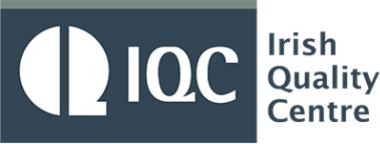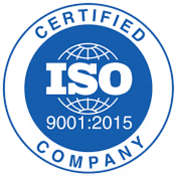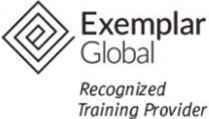Lead Auditor Pharmaceutical Quality Systems (PQS) 5 Day Virtual Classroom 9 Delegates Maximum per training
15,16,19,20,21 Sept - 2022
€1,299 Need a quote for In-house Training email us today info@iqc.ie
Five Day PQS Lead Auditor Training
Regulations require those in cGMP/GDP environments to plan and implement an effective Internal Auditing (self inspection) program. This intensive IQC certified course will enable those attending to assist an organisation in meeting the requirements of the PQS and GMP’s by demonstrating risk based good auditing practices for the whole audit program lifecycle. Trainees will learn the necessary skills to be able to plan, perform, report and improve in relation to all audits and inspections. They will also learn how to liaise appropriately with outside regulatory bodies and to represent your organisation during inspections and whilst auditing your suppliers, in a professional, thorough and fair manner.
Who should attend:
Lead Auditors.
Quality Managers and those with internal auditing / self inspection responsibilities across all departments.
Those who want to pursue a career as a Lead Auditor.
Please note that participants attending the Lead Auditor course are expected to have prior knowledge of quality management principles and concepts, and the basic requirements of the relevant QMS standard. IQC will provide a “Pre-course” pack to all delegates approximately 10 days before the training commences.
As places are limited, book early to avoid disappointment.
Cancellations
Places cancelled within 10 working days of commencement must be paid in full. Substitutions may be made at any time at no additional charge.

Course Objectives
Describe the purpose of a quality management system and explain the 7 principles of quality management.
Explain the purpose, content and interrelationship of ISO9011 and PQS auditing.
Interpret requirements of ICH, EU and USFDA guidelines and regulations and GMP’s in the context of an audit.
Manage an audit programme.
Understand the different types of audits.
Describe the roles and responsibilities of auditors and lead auditors.
Plan and conduct an audit in accordance with ISO 19011, demonstrating ability to…
Plan and prepare effectively
Gather objective evidence, through effective interviewing, observation, sampling and note taking.
Analyse and interpret information in order to determine conformance/compliance with requirements.
Report the audit, including writing valid, factual and value-adding non-conformity reports.
Undertake audit follow-up activities, including evaluating the effectivenessof corrective action.
Professionally liaise with external auditors.
Day One
Fundamentals of Quality & Quality Management Systems.
Understanding regulations and GMP’s – Case Study.
Using Process Management to manage and improve the business.
Establishing Key Performance Indicators (KPI’s) and quality metrics.
Measuring Process Performance and Continual Improvement.
Day Two
Exercises on Understanding regulations and cGMP’s – Case Study.
Exercises on objectivity.
Introduction to Quality Auditing.
Planning the audit programme.
Scheduling audit programme by process
Understanding the organisation and its key processes – teamwork
Exercise on preparing a checklist
Audit preparation – looking at the critical success factors for your organisation
Day Three
Exercises on applying cGMP audits
Opening meeting exercises Improvement Audits
Guidelines for productive meetings
Carrying out the audit…
Teamwork
Collecting information
Communications
Human behaviour
Audit sampling
Audit findings
Evaluating the effectiveness of the Quality Management System in addition to conformance audits
Exercise on Closing Meeting
Day Four
Participants carry out a live audit and put into practice what they learnt on Days 1-3
Feedback from live audit and learning points
Writing the Audit Report
Taking corrective action
Interpret different situations during an audit
Day Five
Case Study auditing – effectiveness of processes.
How to deal with external auditors.
Examination





